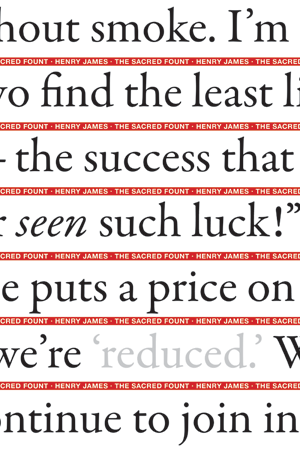“It was the language of the house itself that spoke to him, writing out for him with surpassing breadth and freedom the associations and conceptions, the ideals and possibilities of the mistress. Never, he felt sure, had he seen so many things so unanimously ugly – operatively, ominously so cruel. He was glad to have found this last name for the whole character; ‘cruel’ somehow played into the subject for an article – an article that his impression put straight into his mind. He would write about the heavy horrors that could still flourish, that lifted their undiminished heads, in an age so proud of its short way with false gods; and it would be funny if what he should have got from Mrs. Lowder were to prove after all but a small amount of copy. Yet the great thing, really the dark thing, was that, even while he thought of the quick column he might add up, he felt it less easy to laugh at the heavy horrors than to quail before them. He couldn’t describe and dismiss them collectively, call them either Mid-Victorian or Early – not being certain they were rangeable under one rubric. It was only manifest they were splendid and were furthermore conclusively British. They constituted an order and abounded in rare material – precious woods, metals, stuffs, stones. He had never dreamed of anything so fringed and scalloped, so buttoned and corded, drawn everywhere so tight and curled everywhere so thick. He had never dreamed of so much gilt and glass, so much satin and plush, so much rosewood and marble and malachite. But it was above all the solid forms, the wasted finish, the misguided cost, the general attestation of morality and money, a good conscience and a big balance. These things finally represented for him a portentous negation of his own world of thought – of which, for that matter, in presence of them, he became as for the first time hopelessly aware. They revealed it to him by their merciless difference.”
(Henry James, The Wings of the Dove, book 2, chapter 2)
